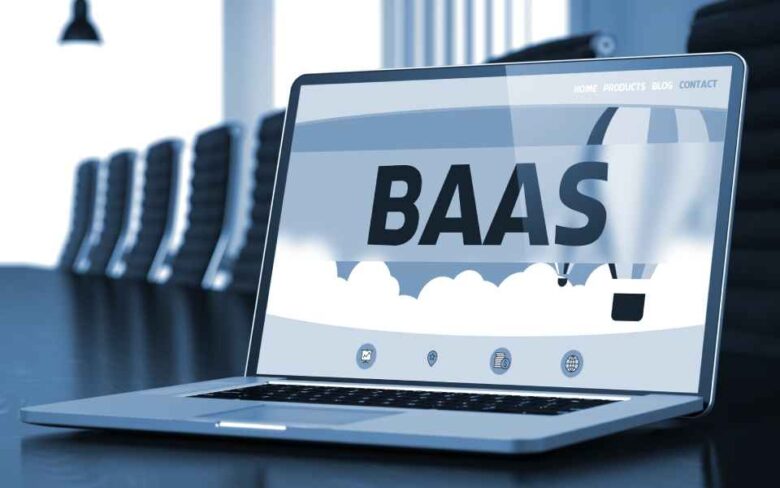You’ve likely heard of Banking as a Service (BaaS), which is not to be confused with Back-end as a Service. Fintechs have been piling onto the trend of offering BaaS solutions to merchants at a substantial pace in recent years and this part of the industry is on a very steep trajectory.
This wave of fintech companies adopting BaaS is only growing, Monneo recently joined this trend. You can learn about their BaaS solutions here. We wanted to learn more about Banking as a Service and to share our findings with you. After doing some research on this topic, we’ve put together a few of the key takeaways below.
Why BaaS is in Such High Demand
As with any business, the first thing to look at is the demand for an item or service. Banking customers (in this case meaning online merchants) find BaaS appealing because it saves them time, money and hassle. Companies can deposit and withdraw money instantly, pay bills and send money to clients without having to visit a bank branch. Some solutions also offer them the ability to do so in multiple currencies, or even with alternative payments.
There is also an observable increase in the demand for BaaS solutions that can be used to automate financial processes, such as expense management, inventory tracking and payroll management. The B2B sector in particular is seeing a large increase in demand for Banking as a Service. In short, BaaS makes life much easier for business owners because it offers more flexibility than traditional banks.
Giving Financial Power to Everyday Merchants

Source: cnbc.com
One of the primary reasons why BaaS is so popular is because it empowers merchants of all sizes to have control of their own financial services, rather than relying on bank employees to manage this on their behalf. BaaS solutions enable merchants to provide their customers with financial services such as loans or even in-store credit cards, almost acting as a bank themselves but without any of the hassle of building a financial institution from scratch (avoiding lots of paperwork). Companies that have access to BaaS services are also able to provide their employees with employee benefit programs, such as in store cards or rewards. It’s amazing to think that through BaaS, merchants are able to offer these services without actually having to build their own infrastructure, no wonder this is catching on so quickly. BaaS products help businesses in their daily operations. Company owners need not worry about managing tedious financial services and can concentrate on the more important aspect of their business at hand.
Banking Competitors Become Partners
The BaaS industry is a perfect example of competitors working together to progress the industry as a whole. For example, large banks (with infrastructure) are collaborating with smaller fintech companies (through the use of cutting edge AI software) to provide their customers with BaaS solutions such as secure digital wallets and more payment solutions. They are also partnering with fintech companies to create blockchain-based solutions that can be used to store and manage customer data more securely than ever.
BaaS enables banks to diversify their revenue by partnering with fintech companies to provide their customers with services such as lending, payments, investment management and insurance services. BaaS solutions are also helping banks to consolidate their data so that they can use this data to develop new financial products, improve customer service and grow their customer base at scale. It’s easy to see that BaaS solutions are helping banks to not only diversify their revenue but also improve the efficiency of their operations. Banks that do not adapt to this are sure to see some negative effects.
Why is Modular Banking Useful?

Source: forbes.com
BaaS allows modular banking, this gives businesses the ability to choose and access a variety of banking services through a single portal. It is a modular setup that lets third-party providers plug into an API to deliver services depending on their business. It also allows these institutions to reduce the number of back-end systems and employees required to support those systems.
Is BaaS Actually Safe for Businesses?
As with any technology-based service, BaaS does involve some level of risk, but don’t be alarmed. To vastly minimize risks of fraud, financial institutions and third-party service providers have been putting strong fraud prevention systems into place, as well as more advanced detection systems. One way of doing this is by using AI to detect suspicious transactions. As fintechs and modern banking institutions size up and advance, so does the security. It remains one of the most or maybe the most important spokes in the wheel of modern banking.
Where is BaaS Headed in the Future?
Along with Fintech in general, the BaaS industry is predicted to grow significantly throughout the next decade. Even by 2025, the BaaS industry is expected to be a truly global phenomenon due to the momentum it currently has. There is also a growing trend toward a higher level of bespoke banking, as BaaS is modular by nature, merchants can pick and choose services they want. This gives it capacity to be even more powerful in the future. This also means that businesses of all sizes will enjoy the benefits of BaaS without having to invest in costly infrastructures. There is sure to be an increased focus on security and privacy, but that’s a given considering the development of the internet and cyber attacks, though it will be interesting to see the steps being made with security.
Conclusion

Source: sydle.com
Make of it what you will but one things for sure, BaaS is only on the up. Merchants want more from their bank and if traditional banks don’t adapt, they’ll be left behind as innovative companies start taking their place. It’s a crazy time to witness such giant, financial powers being forced to adapt in this way, but that’s technology for you. We’ll certainly be keeping a close eye on this area of the financial industry and expect developments to keep coming thick and fast for the foreseeable future.




